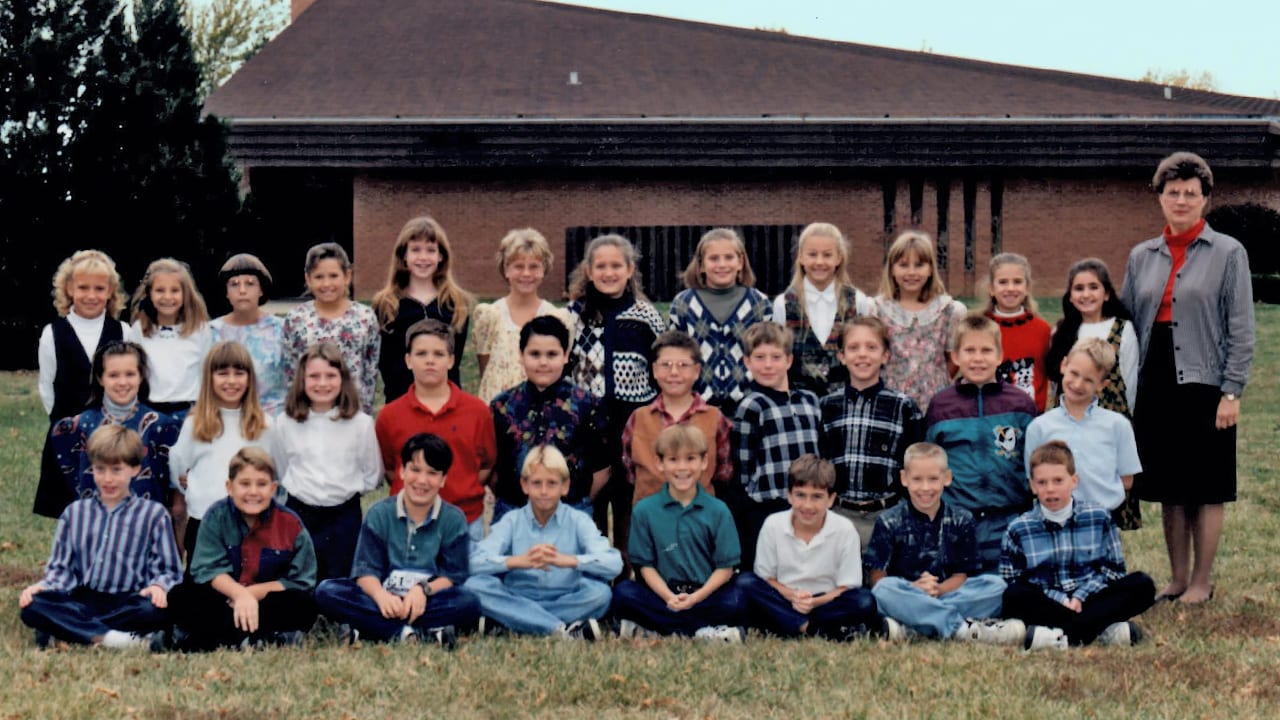Yes, we learned to face Alzheimer’s with songs in our hearts and smiles on our faces.
No, that’s not how we began.
My mother-in-law, Trish, was diagnosed with memory loss in 2008. That was just two years after we lost my wife’s grandmother to Alzheimer’s, so we already knew something about the disease and how tough it could be. We weren’t thinking about joy. We were thinking “here we go again” and asking “why her?” and “why us?”
Lessons Learned
Trish was an elementary school teacher for more than 20 years. She taught children how to read and write, but even more importantly, she taught children many essential life lessons.
Even as her memories slipped away, Trish continued to tell stories about children learning how to share with each other, respect each other, and value time spent with family. She believed students should do most of their work during the school day, so they could focus their evenings and weekends not on doing homework, but on being with family.
When Trish was first diagnosed with memory loss, she told us she planned to remain positive and to try and make the most of each new day. She was making a choice to approach the disease with a positive spirit. She also was teaching her family and friends how best to face the challenges ahead.
Confused, Frustrated, and Scared
So, Trish decided to be positive. That’s wonderful, but that’s also very hard to do when you have Alzheimer’s. When you can’t remember what just happened, it’s easy to become confused, frustrated, and scared.
The disease typically progresses slowly and gradually, and it did for Trish. The good side of slow progression is that people often can continue certain activities for many years. The bad side of slow progression is that it means things can sneak up on you. One day you wake up and you can no longer do something you’ve done for most of your life … perhaps cook a meal, drive a car, or have a meaningful conversation with your spouse or your child.
It’s hard for the rest of the family, too. The person you once knew seems to be slipping away, and there isn’t anything you can do to stop it. Learning to face Alzheimer’s is tough. That’s why so many family caregivers also end up feeling confused, frustrated, and scared.
Steps Toward Joy
The pain is real, but the pain is only part of the journey. The Alzheimer’s journey also can contain joy.
At the start, when you are trying to make it through days of sorrow and struggle, it may be all you can do to find tiny moments of joy. Sometimes those moments are your lifeline to another day. When you glimpse a bit of joy, then look for ways to create more moments of joy. Those moments can lead to more and more times of joy.
As our family learned to cherish and celebrate moments together, we kept discovering joy around every corner. We started planning more family gatherings. When someone had a birthday, we got together for a meal or dessert. If someone in the family was graduating or getting married, we made the trip to help mark the occasion. And we always took the camera along, capturing moments to help keep memories alive for as long as possible.
When the Texas Rangers made it to the World Series in 2010, we didn’t waste the opportunity. Trish had followed the Rangers since the mid-1990s when Sheryl and I both spent time working for the team’s front office. We knew we had to go, and we knew we had to take Trish.
Creating Moments of Joy
Alzheimer’s never slows down. It never goes away. So we still had plenty of hard days and sad times.
We took Trish on trips for as long as we could, knowing she would eventually not be able to travel. She made her last overnight trip in 2015, visiting family in Missouri. After that, it was more important for Trish to maintain a daily routine and sleep in her own bed each night.
But as we worked to create moments of joy, we gained new perspective. Frustration was starting to be replaced by gratitude. Our family was learning to face Alzheimer’s with joy.
When you start to choose joy instead of fear, you learn to celebrate those moments where joy spills over into smiles and laughter and that feeling of wanting to sing and dance. At the same time, you learn that joy is much more than those moments. Joy is more than a feeling. Joy is a deep sense of believing everything will be okay, even when it doesn’t feel that way.
Learning From a Teacher
Trish did face Alzheimer’s with a positive spirit. As her memory started to slip, she looked for ways to help herself manage daily tasks. When something helped, she kept at it.
She made lists and kept a calendar handy. She learned to write things down while she was still on the phone, not after she had hung up. And she wrote the most important notes and reminders on a whiteboard hung prominently on a wall in her kitchen.
We recognized right away that Trish was using many of the skills that had made her such a good elementary school teacher. Her whiteboard reminded us all of the creative and well-organized bulletin boards she used in her classrooms.
As Trish used her teaching skills, she was teaching all of us that it was okay to look for new ways of doing things. In fact, as her Alzheimer’s progressed, we had to look for new ways of doing things.
Sheryl and I talked with doctors and read many good books about Alzheimer’s, but our best teacher during the Alzheimer’s journey was always our own experience. We learned from Trish and from our interactions with her. Often we learned by trial and error, but always we kept learning.
Through her words and her example, Trish was teaching us to persevere, believing everything will be okay even when it didn’t feel that way. She was teaching us to face Alzheimer’s with joy.



Thank you for sharing your story. As I sit here with my mama, who has suffered with memory loss/dementia for many years, your story reminds me to find the joy as we travel down this path together. I know I am privileged to spend each Thursday with my mom. However, there are days I allow fear to overtake my joy. I am a work in progress for sure! I am trying to not look backward as I do have regrets – wish I could tell those that are going through the early stages to enjoy and embellish all that their loved ones can still do and to not to let fear keep them away or discourage them. Thanks again for sharing. Sorry for your loss.
You’re welcome. And thank you for sharing, too. We know the feeling of fighting between fear and joy, and I think all caregivers are a work in progress. That’s why we need reminders and encouragement from each other. Cherish time with your mama.